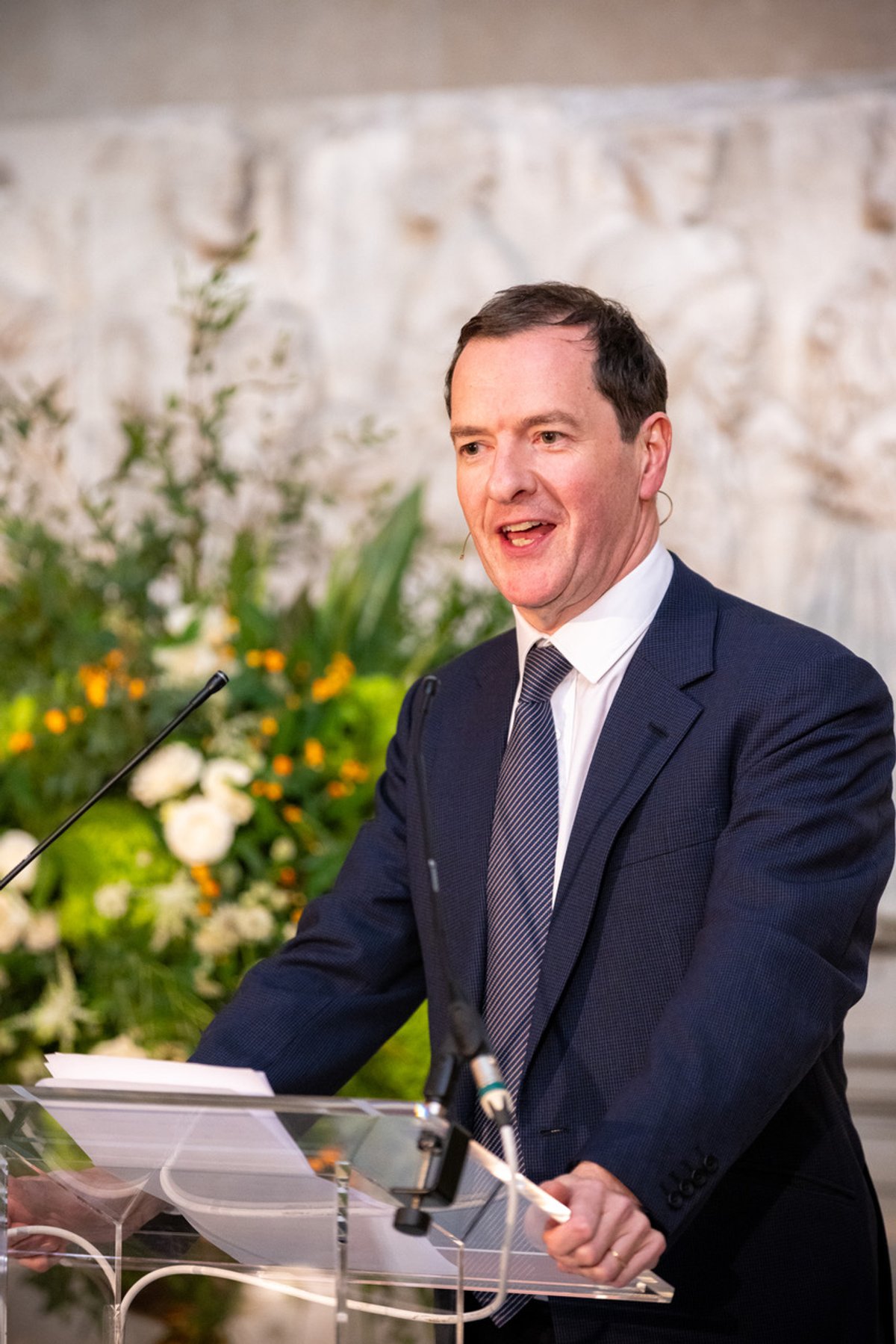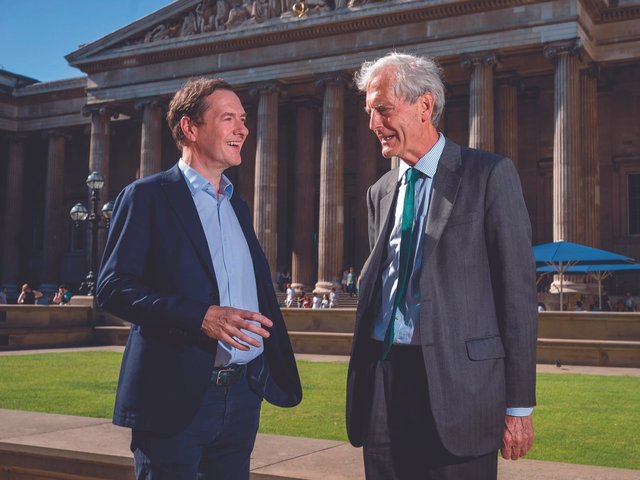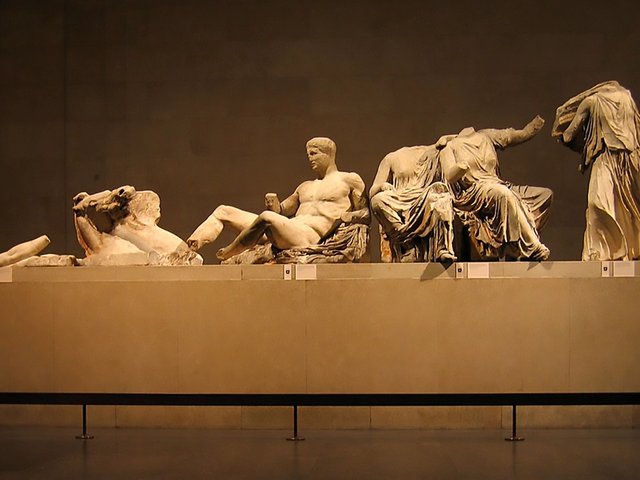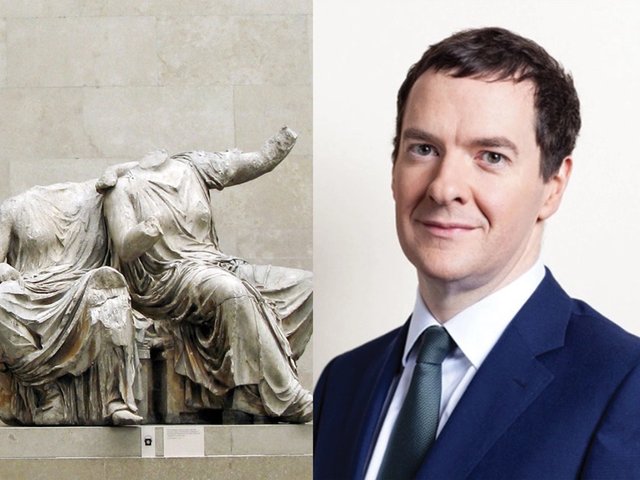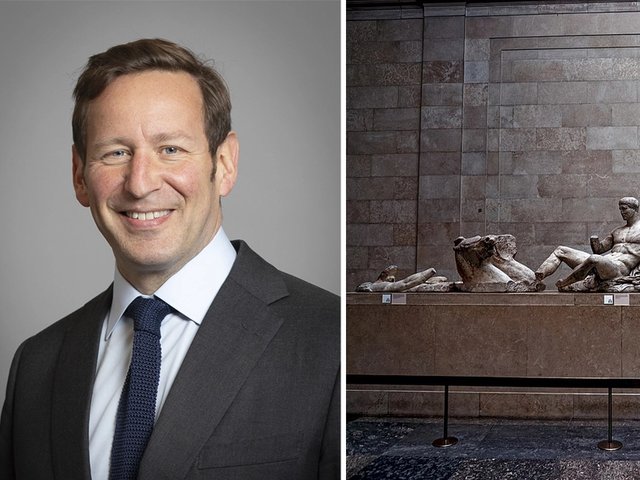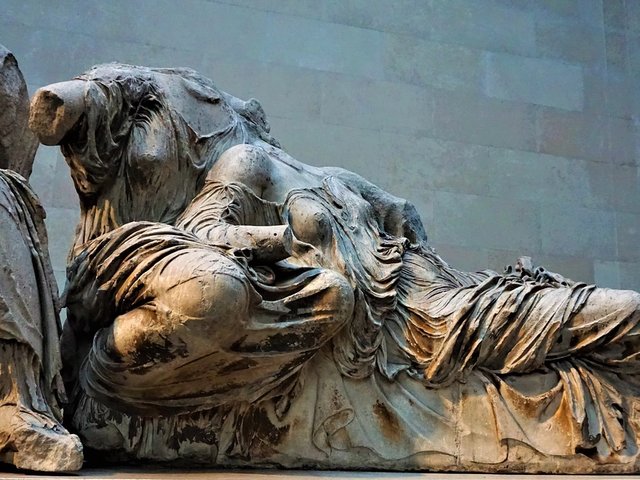George Osborne, the chairman of the British Museum’s (BM) trustees, hosted a glittering dinner for hundreds of guests last night (15 November) in a most surprising and what some might regard as a provocative venue: the gallery where the Parthenon Marbles are displayed.
This bold move suggests that the museum intends to take a proactive role to resolve the long-running dispute with Greece, which dates back more than two centuries when Elgin brought the Marbles to Britain. For the past 40 years the Greek government has formally claimed the sculptures, wanting to complete the display in the Parthenon Museum in Athens.
Osborne, a former chancellor of the exchequer, was frank, speaking more widely about controversies now facing the museum: “Too often we’ve thought: let’s keep quiet. If we don’t talk about things that are difficult, then no one else will. And course, it hasn’t worked. When there is controversy because of mistakes we have made then we should own those mistakes.”
His speech was delivered directly in front of one of the Parthenon frieze panels, in which gods are behaving like humans. The messenger god Hermes is having his shoulders lent on by Dionysos, the god of wine and excess.
Osborne went on to express a hope that “we can reach an agreement with Greece”, for at least some of the British Museum’s sculptures “to be seen in Athens”. In return, he wants “other treasures from Greece, some that have never left those shores, to be seen here at the British Museum”.
He said that the BM trustees would “look for a partnership with our Greek friends that requires no one to relinquish their claims, asks for no changes to laws which are not ours to write, but which finds a practical, pragmatic and rational way forward”.
In practice these comments suggest that any sculptures going to Athens would be on loan, since deaccessioning is prohibited by law, under the 1963 British Museum Act. What is surprising is that Osborne said that the Greeks would not be required to “relinquish” their claim, since it is difficult to see how the museum could lend to a country which has a legal claim on the objects.
Osborne concluded on the proposed Marbles partnership: “We may well not succeed. But we think it’s worth trying.” The idea of an exchange of some of the Marbles in return for key Greek antiquities, in a loan arrangement, had been suggested by Osborne earlier this year, but not in such a formal speech and with this amount of detail.
It is interesting that the BM chairman is still pressing for a deal with Greece while the museum is headed by an interim director, Mark Jones, following the resignation of Hartwig Fischer in August. It might have been expected that Osborne would have waited until the arrival of a new permanent director, probably next summer. However, the BM’s collection is vested with the trustees and therefore can be considered their responsibility.
One person who was not visible at the dinner was the Greek ambassador. Presumably it would have been too early in the delicate discussions for Dimitris Caramitsos-Tziras to have been publicly seen at such an event, although Osborne may well have had encouraging private contacts with him.
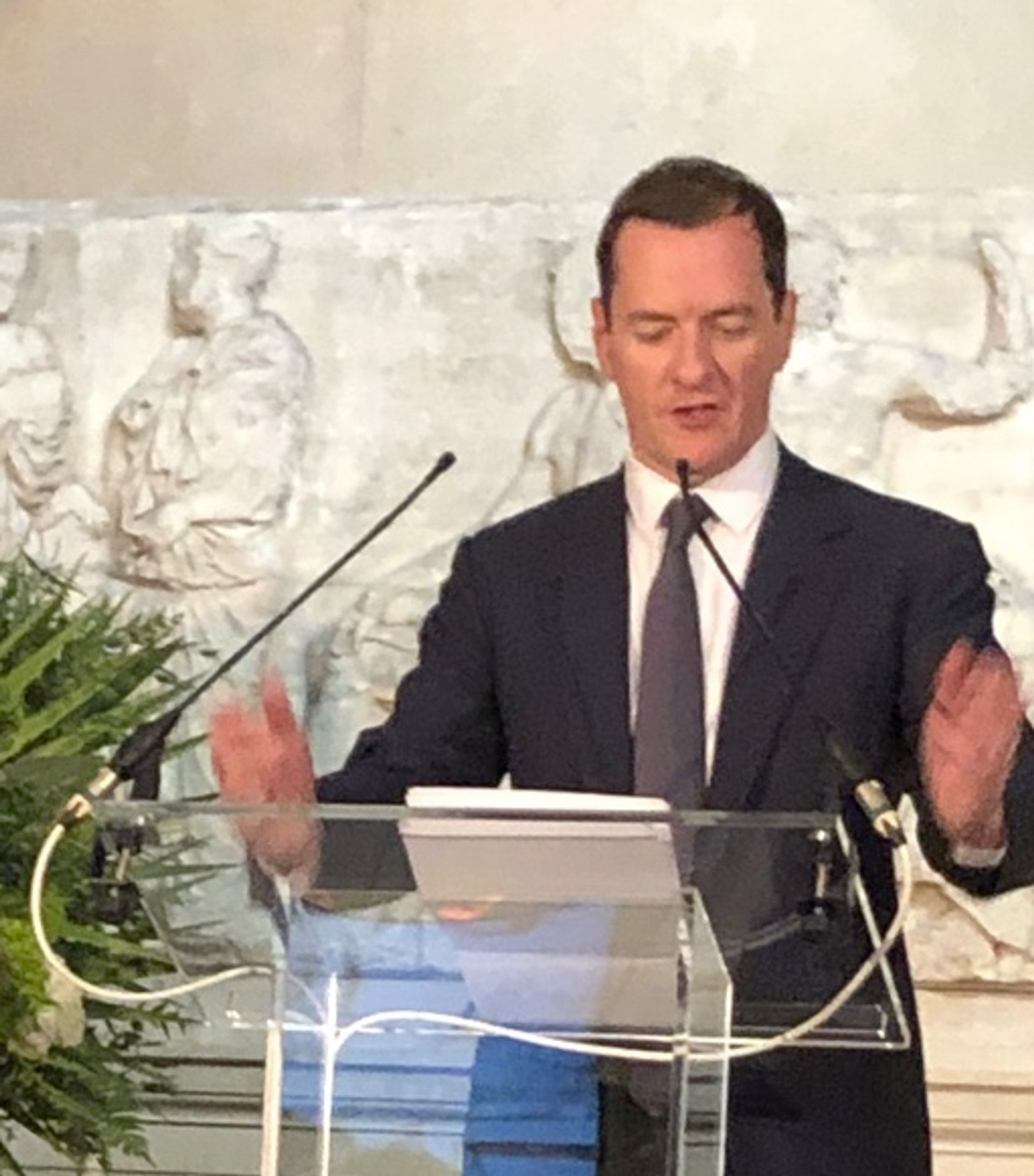
Behind Osborne is the Parthenon frieze at the British Museum, London depicting the messenger god Hermes with his shoulders lent on by Dionysos, the god of wine and excess.
In his address, Osborne also referred to recent revelations that a senior curator had stolen around 2,000 BM antiquities over a period of “several decades”. Once again, he was frank, commenting on the responsibility of the trustees: “We can’t pretend it didn’t happen, or it doesn’t matter, or that some years ago we weren’t warned. It was our duty to look after these objects and we failed in that duty.”
Osborne added: “It’s why we commissioned a far-reaching, independent review into what went wrong and how to fix it. It’s why we will publish its conclusions in the coming months. And it’s why I’ve apologised for what has happened.” Encouragingly, the chairman has now given a commitment that he will at least publish the conclusions.
Yesterday it was also announced that the artist Tracey Emin has been appointed a BM trustee, nominated by the Royal Academy of Arts. She takes over from Grayson Perry.
Guests at the dinner included the director general of the government’s security service MI5, Ken McCallum, who was thanked by Osborne for “keeping us all safe in troubling times”.


